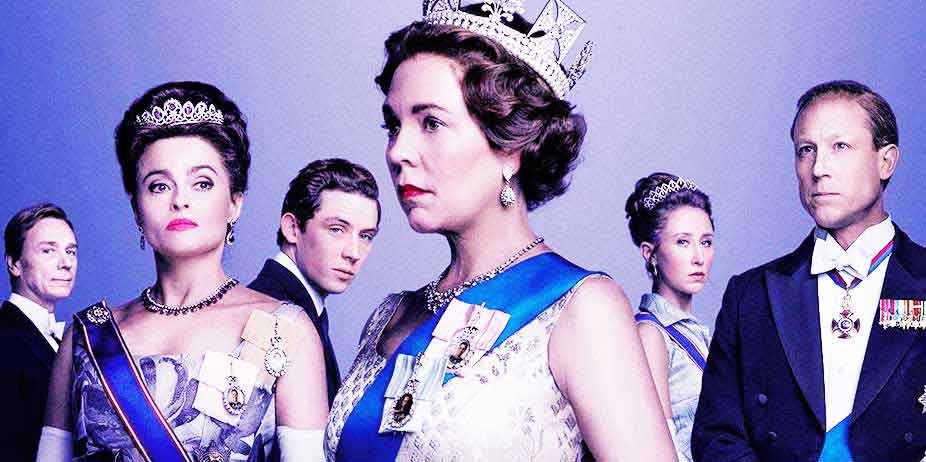
The Crown: Season Three (2019)
The third season of Netflix's highly successful series changes the entire cast and introduces new figures in ten episodes that range from the moon landing to the disaster in Aberfan.
England ushers in a new labor party Prime Minister, about whom Queen Elizabeth (Olivia Coleman) hears disturbing rumors. There is a Russian spy somewhere close to the throne, and many point to him as the likely culprit. But the true perpetrator is someone she never imagined. While she wrangles politics in Buckingham Palace, her sister Margaret (Helena Bonham-Carter) embarks on an American tour to help promote her husband's new photo book. An official plea from the queen for them to call upon President Johnson in an effort to charm him into a financial bailout threatens their already rocky marriage.
Elsewhere in the world, an uprising threatens the safety of Prince Philip's mother. Her arrival in England comes at what her son sees as an inopportune time, as Philip (Tobias Menzies) tries to raise public opinion in favor of the royals after a disastrous flub on national television. But their daughter, Princess Anne (Erin Doherty), takes a shine to her opinionated, chain-smoking nun of a grandmother, and comes up with a clever scheme to get them out of hot water. Meanwhile, Prince Charles (Josh O'Connor) finds himself at home in the theatre, but soon must uproot himself and go on a diplomatic study session to Wales.
Political and private disasters abound in the episodes, which each tackle a notable situation in a ten year span of the queen's life. The replacement cast is capable and memorable, although in some instances they struggle to get out from under the earlier' seasons' long shadows... and it does not help that they don't always look like their predecessor. Due to so much emphasis on more recent history, the focus of the series has changed and is in some ways, a little less compelling. Characters such as Winston Churchill filled the screen; this time, I found myself waiting to catch glimpses of Charles and Carmilla, only to feel denied any true development of their attachment. They are a footnote in someone else's story, which doesn't allow either of them to feel fleshed out. But the show does a good job in making me sympathetic toward Charles, who isn't allowed to define his own destiny, assert any of his own opinions, or choose the woman he loves. He mirrors the earlier frustrations of Margaret, also foiled in her relationships, but not with quite as much depth since the series brings him in so late.
That isn't to say that I didn't enjoy myself. The episodes have many meaningful, touching, and simple moments. They follow the usual quiet, stoic formula, but also delve somewhat into the inner-workings of the main character's emotions. The queen frets that she hasn't enough emotions to do her job well. Philip goes through a midlife crisis. The disaster in Aberfan is both touching and hard to watch, and also an ominous foreshadowing of Elizabeth's dangerous inability to respond promptly to public attention -- something repeated to a devastating degree in the Diana debacle. Truth be told, there's a lot of good here, but it's also one of the duller periods in her life. I expect the next season, with all its impending scandal and the arrival of Margaret Thatcher will be a bit more memorable.
Sexual Content
Margaret and the president trade bawdy limericks, which an uncomfortable
Prime Minister repeats to the queen. Various references to "sewing your wild
oats" as a man, sexual affairs; an unmarried man and a woman talk about how
"good" it was while they get dressed afterward; an unmarried couple shares a
room; in the final episode, both partners in a marriage commit adultery (nothing
shown more than kissing).
Language:
Couple of f-words. Minor profanities. Abuses of Jesus / Christ's name.
Violence:
A coal bunker breaks and floods a town, slamming into a
school and killing the 110 kids inside; we see people pawing through the rubble
in search of them, and carrying out bodies. Evidence of domestic disputes
(broken chairs, broken glass, etc).
Other:
Most of the characters are rude, selfish, and
unfeeling, which means it doesn't cast the royal family in a nice light. There
are historical inaccuracies.
